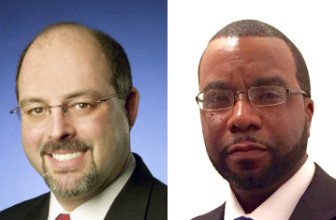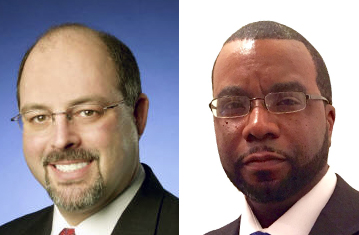 During this season marked by the observation of Easter and Passover, as Christians honor Christ’s sacrifice for the forgiveness of their sins, and Jews celebrate their liberation from slavery in Egypt, we join in seeking the liberation of all who may be enslaved.
During this season marked by the observation of Easter and Passover, as Christians honor Christ’s sacrifice for the forgiveness of their sins, and Jews celebrate their liberation from slavery in Egypt, we join in seeking the liberation of all who may be enslaved.
During this time, in the juvenile justice arena, we joined together to observe the much lesser-known Month of Faith and Healing. As faith leaders and members of national human rights organizations Tru’ah and the National Juvenile Justice Network, we paused to take stock of our current system for dealing with youth in trouble with the law and call on others to do the same.
What we saw in our examination was deeply disturbing. Rather than a system grounded in ideas of forgiveness and redemption — a system in which the liberation of former slaves was apparent in the fair treatment of all youth — we saw a system that still bears the mark of our deepest national injustice and that perpetuates the historic inequities we so urgently need to shed. What we saw was undeniable disparities in treatment for youth of color at every stage of the system from arrest to referrals to juvenile court to detention to youth waived to adult court. The impact of these disparities destroys our children’s lives and demands action from all of us as moral citizens.
And while our home state of New Jersey has taken steps at rectifying this injustice through participation in Annie E. Casey’s Juvenile Detention Alternatives Initiative, we have clearly not yet finished wandering the desert to achieve true liberty. Our own New Jersey Juvenile Justice Commission’s report from Easter week (March 24) reported that 91.4 percent of youth detained are youth of color. We must ask ourselves how we can celebrate the sacrifice for the forgiveness of our sins or the deliverance of our ancestors while incarcerating our youth of color for sins for which we grant others redemption.
Many of these youth end up in the justice system because other systems fail them. They end up there because zero-tolerance policies in schools push kids into the streets for minor misbehavior; because an overburdened child welfare system can’t help their families; and often because schools and our behavioral health system do a very poor job of identifying and treating mental health issues and complex trauma in young people. This is a sign of a broken system, forcing us to ask ourselves, “Is this fair? Just? Moral?”
[Related: Case Now Strong for Ending Probation’s Place As Default Disposition in Juvenile Justice]
We are wandering in the desert. We have not yet been liberated. We must do better by our youth. Our youth deserve our forgiveness and a chance at redemption. New Jersey deserves liberation. Together, we can unite across denominations to support common-sense policies that call us to question the effect of our policies on youth of color and assess the impact on disparities.
We can ensure that youth are not unfairly criminalized by punitive school discipline policies and make sure that all youth in trouble with the law have competent legal counsel to shepherd them through the system. We can eliminate the unnecessary transfer of so many youth (in New Jersey, 90 percent of them youth of color, according to a study by the New Jersey Parents’ Caucus) to adult court and the adult prison system.
As we celebrate these holy days, we call for healing. Just as the pope washed the feet of young people at a youth detention center, we must be willing to display humility if we hope to cleanse injustice and heal communities. We open our arms to other faith leaders and congregations to join us in calling attention to the plight of youth in our justice system and pursue solutions based in redemption, not retaliation. And we ask our congregations to stand up and speak out for a moral system that treats our children justly.
There are also immediate practical steps we can take. Those of us in New Jersey can support the adoption of Senate Bill 677, sponsored by Sen. Ronald L. Rice, which would require our legislature to issue racial impact statements to assess whether proposed legislation will have a disproportionate racial impact.
Nationwide, we can all support the reauthorization of the Juvenile Justice and Delinquency Prevention Act, which includes new provisions requiring states to make meaningful progress on racial disparities.
But this is only the beginning. We must ensure that our society begins to see youth in the justice system as children who we have failed, as children capable of redemption, as children who can and will make positive contributions to our community.
Rabbi David C. Levy is the rabbi of Temple Shalom in Succasunna, New Jersey, a member of Tru’ah and served as the Jewish chaplain for Marion Federal Penitentiary in Marion, Illinois.
The Rev. Charles F. Boyer, pastor of Bethel African Methodist Episcopal Church in Woodbury, New Jersey, and coordinator of the Covenant Project to Eradicate Mass Incarceration.
More related articles:
Alternatives for Justice-Involved Youth with Mental Health Needs Finally Start to Appear
Rep. Kennedy Calls Juvenile Justice the Next Civil Rights Issue
Advocates Cheer Probe of Racial Bias in Mississippi School Discipline
